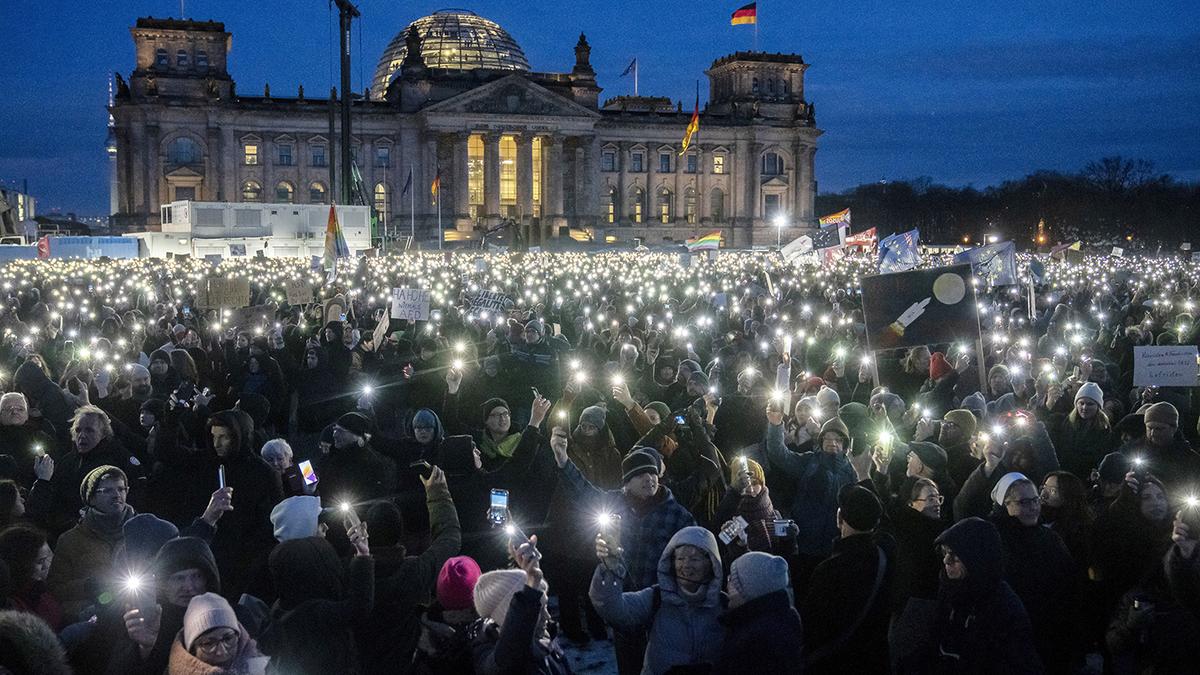The recent rise of the far-right Alternative for Germany (AfD) in eastern German states has sparked widespread fear and concern, particularly among minority groups and those who remember the horrors of Nazi Germany. The AfD’s victory in the Thuringia state election, led by Björn Höcke, a figure known for his extremist views, has sent shockwaves through German society, highlighting the deep divisions and anxieties that are simmering beneath the surface.
The Fear of a Hostile Environment
The prospect of AfD gaining further power has prompted many, including those in minority groups, to contemplate leaving their homes. Nicki Kämpf, a 29-year-old mother of a young child, and her wife, are seriously considering moving west to Cologne, a city known for its liberal atmosphere. Kämpf is particularly worried about the future of her daughter, whose adoption process is still ongoing, and fears the AfD’s ideology could create a hostile environment for her family. She expresses concern about raising her child in a society that might not embrace their family unit.
The East-West Divide
This fear is amplified by the AfD’s stronghold in the eastern states, which have a distinct history and societal structure compared to the west. The east has struggled to fully integrate into the united Germany after the fall of the Berlin Wall, and many feel neglected and overlooked. The AfD capitalizes on this sense of grievance, weaving a narrative of economic hardship, perceived cultural loss, and resentment toward immigrants and “elitist” western policies.
Deep Discontent Fuels AfD Support
Several factors have contributed to the surge in AfD’s popularity, including widespread dissatisfaction with the national government, fuelled by inflation, economic instability, and infighting among political parties. Anti-immigration sentiment and skepticism towards German military aid for Ukraine have also fueled the populist wave, providing fertile ground for the AfD’s nationalist and anti-establishment rhetoric to resonate with voters.
The Shadow of the Past
For many older Germans, who lived through the Nazi era, the AfD’s rise evokes painful memories and a deep-seated fear of a return to a dark past. Holocaust survivor Charlotte Knobloch cautions against dismissing the AfD’s success as a fleeting aberration. She argues that the party’s success reflects a conscious choice by voters who actively chose to empower extremist ideologies, even if driven by frustration and anger.
Fear of History Repeating
The growing popularity of the AfD among young voters is a cause for alarm. Many see this trend as an indication that Germany has not fully come to terms with its past. Older Germans, who witnessed the devastation wrought by the Nazi regime, are particularly distressed by the fact that their youth seem willing to embrace extremist ideologies. Political scientists highlight the formative nature of these first voting experiences and worry about the implications for the future political landscape.
Takeaway Points
- The AfD’s rise in eastern Germany signifies a deep societal divide and a growing sense of discontent, particularly in regions grappling with economic challenges and a sense of cultural alienation.
- The AfD’s success is rooted in a potent mix of populist rhetoric, economic anxieties, and a rejection of traditional political structures.
- The widespread fear of a return to a dark past, fueled by the AfD’s extremist rhetoric, is particularly potent for older Germans who lived through the Nazi era.
- The growing support for the AfD among young voters raises concerns about Germany’s ability to learn from its history and guard against the reemergence of extremist ideologies.
- The AfD’s success is a sobering reminder that democracy is fragile and requires continuous vigilance against the forces that seek to undermine its foundations.









